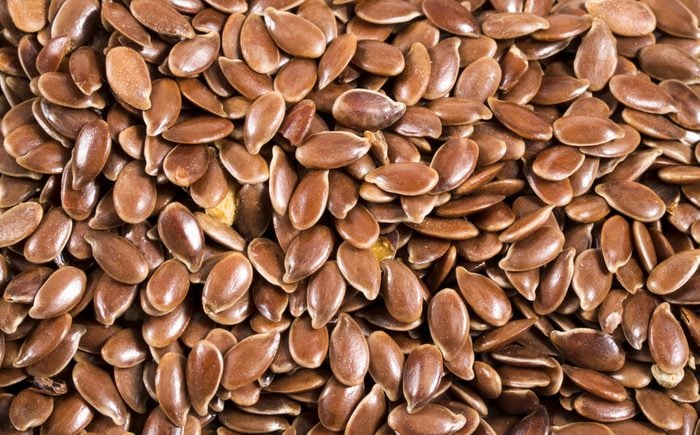
Flaxseeds
There are two types of polyunsaturated fatty acids, omega-3s and omega-6s, and research suggests the human body was designed to run on an equal balance of both. When that balance tips to too many omega-6s, it could cause inflammation. Western diets often dish out more than ten times as many omega-6s—which are in refined vegetable oils common in processed foods—as omega-3s, which could explain why adding omega-3s can help fight inflammation. Flaxseeds are another good source of omega-3s, specifically alpha-linolenic acid (ALA). Throwing flaxseeds into your bowl of cereal in the morning is an easy way to up your intake, says Asha Devereaux, MD, MPH, a pulmonologist in Coronado, California, and co-chair of the American Thoracic Society’s Integrative Therapy interest group.
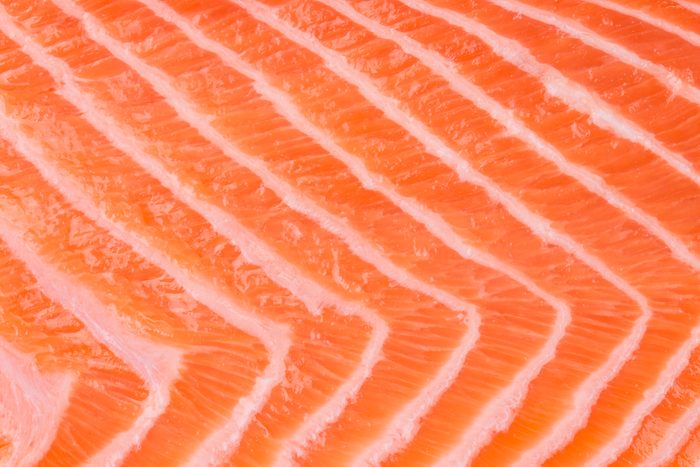
Fish
There are three main omega-3s—eicosapentaenoic acid (EPA), docosahexaenoic acid (DHA), and alpha-linolenic acid (ALA). EPA and DHA are the primary omega-3s that help with inflammation and they can be found in fatty fish and supplements. Dr. Devereaux recommends eating the seafood, rather than popping fish oil pills. “All supplements should be chewed in the foods they came in,” she says. “The Mediterranean diet is two to three servings of fish, not taking the supplement.” And more isn’t necessarily better; for example, people with COPD might only be able to digest a limited amount of omega-3s, and going overboard could make it break down, says Dr. Devereaux, who suggests eating fish twice a week.
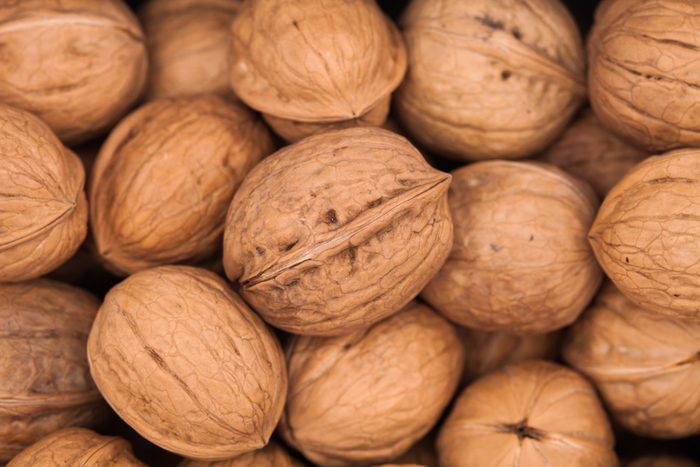
Walnuts
If you aren’t a fan of seafood, you can get omega-3s from other sources. Contrary to mainstream belief, however, nuts aren’t equivalent to fatty fish, as ALA, the type of omega-3 fatty acid in plant sources, needs to be converted in order for the body to use it and the conversion isn’t very efficient, with only a small percentage of ALA making it all the way to DHA. Nuts are still beneficial, though, and walnuts are the number one nut source. If you’re looking for a non-fish source of ALA and DHA, check out Spirulina, a protein-dense freshwater algae. Here are 12 things you need to know if you want to go vegan.
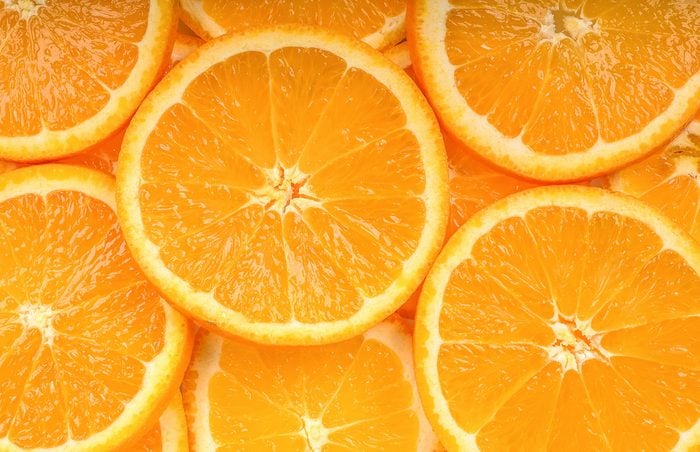
Citrus fruits
Loading up on vitamin C can strengthen the immune system, which is particularly important for people with lung problems. “A cold above the neck will exacerbate lung problems below the neck,” says Dr. Devereaux. Plus, a meta-analysis in Scientific Reports found that for every 100 milligrams of vitamin C taken in each day, lung cancer risk was reduced by 7 percent. Dr. Devereaux points out that while the antioxidant can protect against lung inflammation in smokers, it won’t negate the harms of cigarettes. These are 13 foods you should never eat if you don’t want cancer.
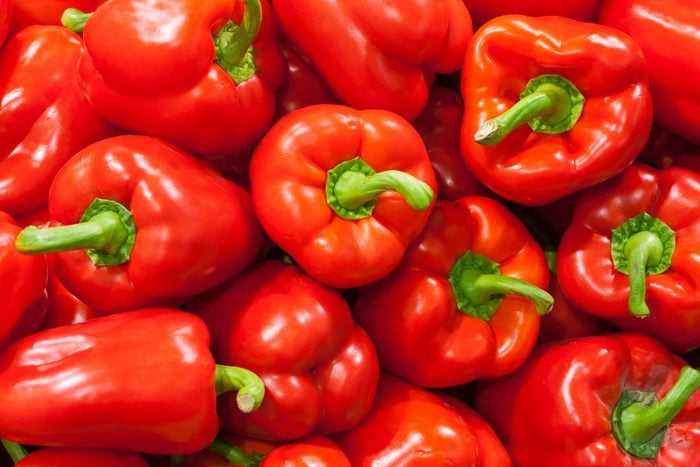
Bell peppers
You might already think about citrus as a prime source of vitamin C, but it’s not the only option. Dr. Devereaux also recommends eating bell peppers. All varieties have significant amounts of the antioxidant, but yellows pack in the most, with more than five times your daily C needs provided by a single large pepper.
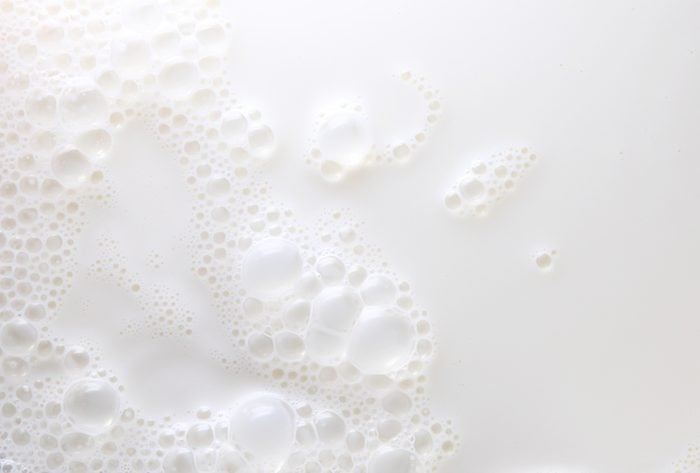
Milk
People with lung disease tend to be at higher risk for vitamin D deficiency, and low levels may contribute to inflammation in the lungs. “They may have more severe presentation if D levels are particularly low,” says Dr. Devereaux. “Our conservative recommendation is anyone with lung disease make sure their vitamin D levels are in range.” When it’s not possible to get the “sunshine vitamin” naturally from being outdoors in the sun, drink milk fortified with vitamin D. Milk has about a fifth of your daily needs, and the fatty fish mentioned above naturally contain even more vitamin D.
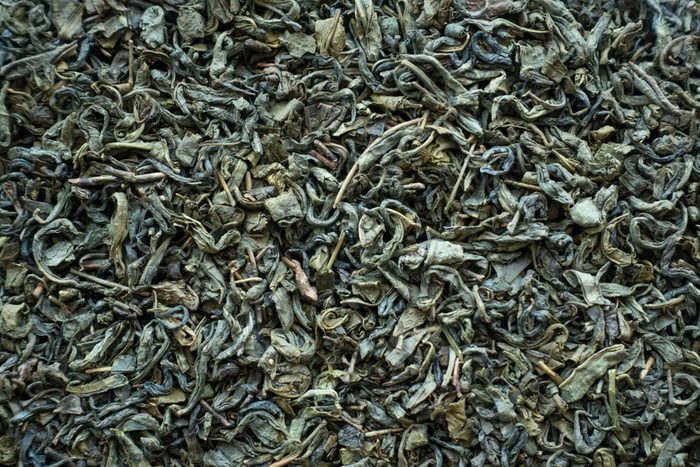
Green tea
Your body naturally creates imbalanced molecules called “free radicals” as a byproduct of metabolism, via oxidation. Moderate levels of free radicals are normal and healthy, but build up too much and they cause oxidative stress, leading to inflammation. Antioxidants keep free radicals from getting out of control, and research shows certain antioxidants called polyphenols could help quell inflammation. Studies suggest polyphenols in green tea could help block inflammation in the lungs of smokers and potentially protect against cancer. Check out these other 30 foods proven to help fight against cancer.
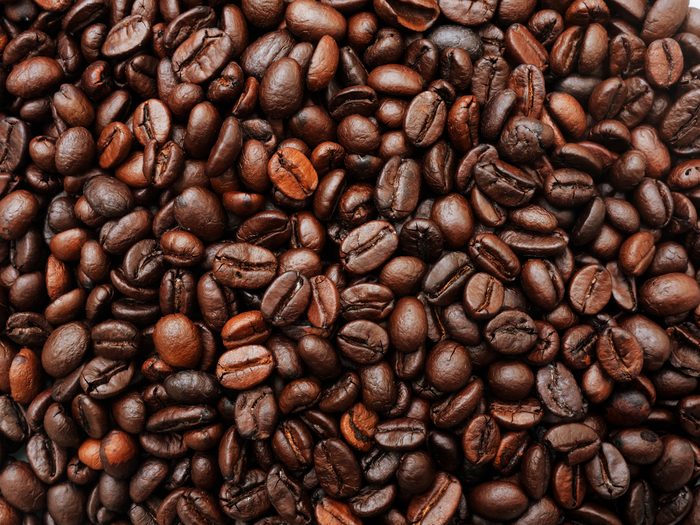
Black coffee
Prefer coffee over tea? No worries; java also contains anti-inflammatory polyphenols. But there’s a catch: “If you put milk or sugar in the coffee, you neutralize the polyphenols,” says Dr. Devereaux. Sip yours black to reap the best lung-healthy effects. To get the most antioxidant effect, brew your coffee this way.
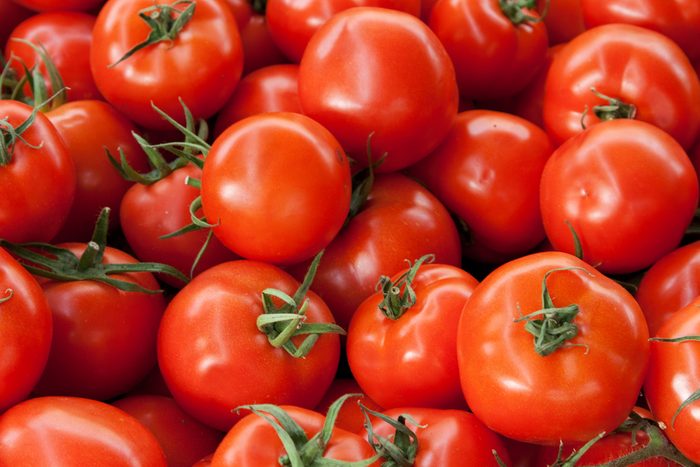
Tomatoes
A small study on asthmatic adults found that drinking tomato juice or taking tomato extract for a week improved lung function and reduced asthma symptoms. The researchers suggested an antioxidant called lycopene was behind the improvements. Fresher tomatoes tend to be higher in antioxidants than canned, says Dr. Devereaux. Watch out for these 12 silent symptoms of lung disease.
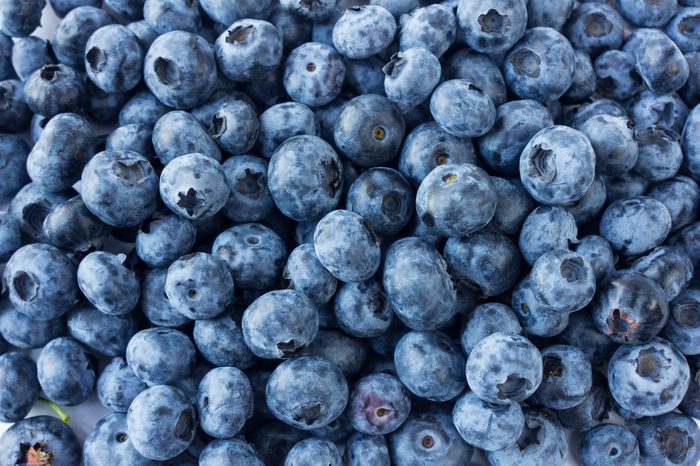
Berries
While vegetables tend to be the healthiest sources of vitamins and antioxidants, some fruits can be good sources. “Lean towards reds and purples, which tend to have the highest levels,” says Dr. Devereaux. Those vibrant reddish hues come from polyphenols, and pomegranate juice has some of the highest levels of any fruit. Berries like blueberries, raspberries, and strawberries also pack a polyphenol punch. This one simple trick will make your strawberries keep longer.
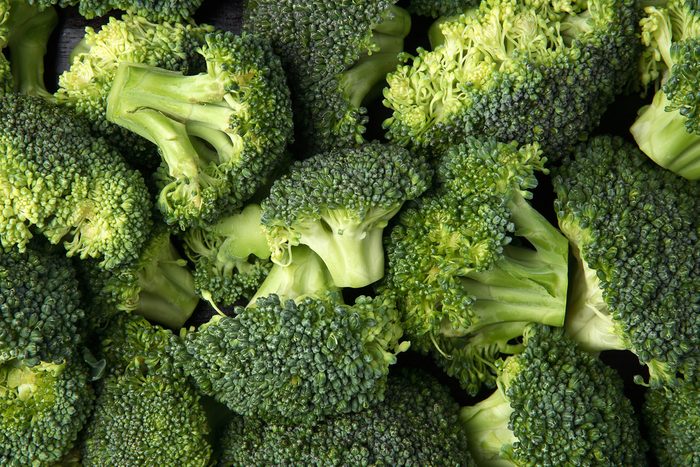
Broccoli
Research suggests that sulforaphane, a chemical found in broccoli and other cruciferous vegetables, could be anti-inflammatory for people with COPD. Plus, a cup of broccoli contains 135 percent of your daily need for vitamin C, which is even more than you’d get from eating an orange.
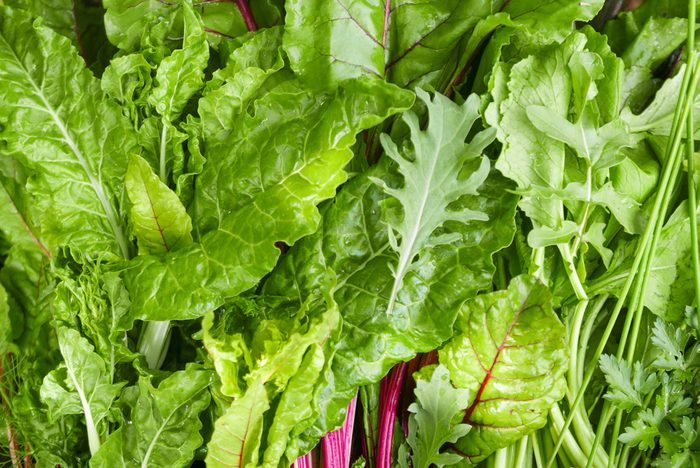
Leafy greens
A study following 4,400 Dutch adults found that lutein, an antioxidant found in leafy greens, could improve lung function in smokers, though it didn’t have the same protective effects in non-smokers. The researchers suggest that the benefits come from lutein’s anti-inflammatory effects. Don’t miss these other 12 foods that could help you breathe better.